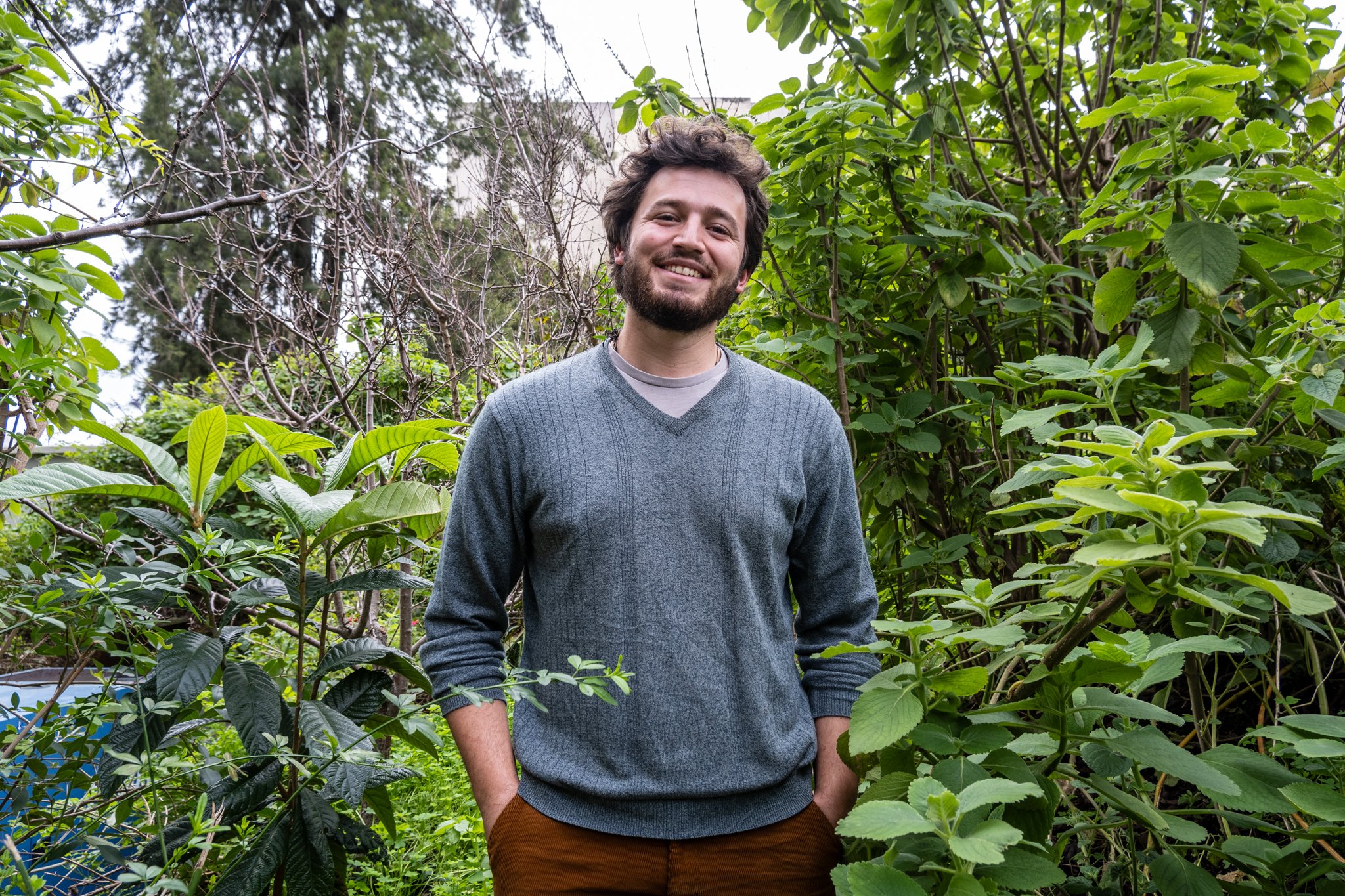Chronicle.
Para destacar os benefícios de um jardim comunitário, a HortaFCUL criou um relatório com os indicadores que revelam o seu impacto positivo na comunidade académica e na cidade, ao longo de 15 anos.

Na década de acção para o desenvolvimento sustentável, projetos liderados pelas comunidades vão ganhando popularidade um pouco por todo o mundo. In urban areas, the emergence of community gardens has been a growing trend in recent years. These initiatives meet a number of global challenges, promoting solutions in areas such as public mental health, food sovereignty and security, climate action or even citizen empowerment.
Despite the universal growth pattern of community gardens around the world, Portugal is still home to few of these initiatives. In Lisbon, the number of community gardens - that is, green spaces whose governance is entrusted to a local citizens' group - is unlikely to exceed a handful of examples, with some limiting factors persisting, such as a lack of space, tools or basic financial support. However Alto da Eira vegetable garden and Bela-Flor Respira are already excellent examples of community gardens in Lisbon that prove that interest and enthusiasm around the idea is growing. Although the logic behind a bottom-up initiative is to eliminate top-down bureaucracies, institutional support and validation are valuable assets for boosting and helping initiatives of this kind, translating simple enthusiasm into real, transformative spaces.

With the aim of informing and raising awareness among political and institutional decision-makers of the benefits of the mere existence and operation of a community garden, the HortaFCUL - a permaculture collective based at the Faculty of Sciences of the University of Lisbon (FCUL) - decided to take its example as a case study, and transcribe its positive impact through a set of clear, objective and scientific indicatorsbased on internationally recognized matrices, such as the Ecosystem Services and the UN Sustainable Development Goals. These two approaches were adopted in a recently published report on the 15th anniversary of HortaFCULThe book summarizes all the project's activity over this long period. There are almost a hundred pages with a lot of scientific content but also photographic and visual records that reflect the importance of this project for an entire community.
What makes HortaFCUL a relevant case study in this area? Founded almost 15 years ago, this project continues to be a benchmark example as a community permaculture project in a university context, in Portugal and worldwide. A sua já longa história é, sobretudo, uma história de sucesso, de superação de obstáculos e dificuldades, e de inspiração para outras iniciativas em território português e além-fronteiras. Neste relatório, a atividade desenvolvida pelo projeto desde 2009 foi traduzida em números, e os resultados são profundamente reveladores do potencial que jardins comunitários têm para combater problemas e deficiências nas comunidades humanas. Este documento é a the first attempt in Portugal to link a community project with scientific indicators, with the aim of concretely translating the benefits extracted from the existence of an ecosystem of this kind.
There are four areas in which HortaFCUL has played a crucial role within its community. Firstly, the promotion of biodiversity. If we look only at the plants - the flora of the ecosystem - we find that the spaces of the HortaFCUL have, in all, more than a hundred species of perennial life cycle in an area that corresponds to approximately 4% of the total area of the campusIn the rest of FCUL's green spaces (26% of the campus area), almost 90 perennial species were identified.
Secondly, the cooling and afforestation of the FCUL campus. At a time when the effects of heatwaves are being felt with increasing intensity in cities like Lisbon, the provision of cool spaces in the city is essential for the comfort and health of the population. On the campus of the Faculty of Science, we measured the evolution of the tree cover of the green areas and observed that the spaces of the HortaFCUL offered up to three times more tree cover than the other conventional lawns of the faculty.
Thirdly, the reuse waste. Composting is in vogue and many people are already adopting this type of practice at home. However, in 2016, HortaFCUL pioneered the first community composting trial in Portugal, producing from the start of the composter's activity almost 48 tons of organic compostIt also sequesters carbon equivalent to 1.5 times the annual carbon footprint of a Portuguese citizen. This compost has been invested in food production and plant propagation, with a considerable portion also being donated to the community.

Fourthly, the social action that projects of this nature promote in their community. Since the beginning of HortaFCUL, 74 volunteers were active members of the project. More than 440 events were recorded (one event every 11 days) and the number of working days is estimated to have been at least 450 (1,800 hours of voluntary work). The most representative events - workshops, guided tours and talks - totaled 225 over 13 years, with an average of 24 participants per event (5,353 participants in total). With regard to partnerships and direct support for other projects, there were 87 documented occasions (an average of 6 per year).
In summary, this report can be seen as a first attempt to scientifically summarize the added value of a community garden in Portugal. The documented evolution of the project here can be considered a learning curve for many initiatives that are still in their infancy. Although the objectives and reference indicators for each community project may vary according to the specific needs of the context, the general structure of this report can be used to monitor the benefits arising from the activity of community gardens.
This research effort should encourage future work in this area, finally establishing community gardens as scientifically valid and relevant objects of study in academia. We hope that this report will flesh out the potential of a community garden to promote bottom-up, nature-based solutions with decision-makers and institutional stakeholders, as well as to support the regenerative and transformative potential that these projects have within their local communities.








